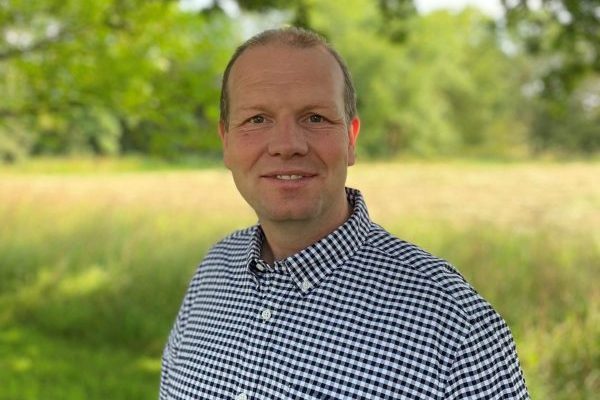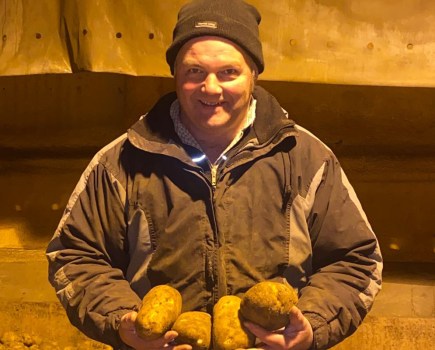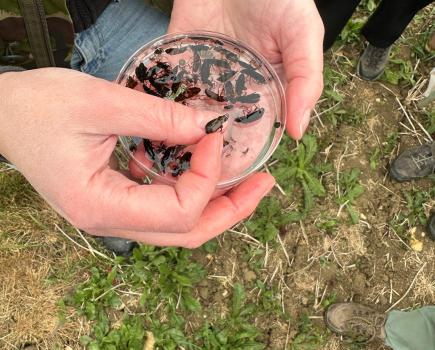By Martin Lines
During the past few weeks I’ve spent a lot of time on trains travelling to different parts of the country for meetings and conferences. While it’s nice to sit back, relax, and let the train take the strain, when I look out of the window I see crops that farmers were unable to harvest – soil in poor condition and pooled with water; a patchy landscape where once crop growth would have been full and consistent across the fields.
The erratic weather events and degradation of the land that’s talked about as a problem of the future is already happening, and it’s very depressing.
With falling figures for commodities and any price increases reversed the very day after they’re announced, the market news during the past few months surely can’t have been beneficial for arable farmers’ mental health.
Seed and input costs are so high – farmers looking at planting spring crops this year won’t be in good spirits. I sometimes wonder if other actors in the supply chain have ever stood up from their desks and looked out into the sorry fields outside their windows.
Crop production across the UK and Europe won’t be breaking yield records this year. It’s not just us that are suffering extreme and unseasonal weather – it’s happening around the world. Anyone who’s seen the data for the increases in sea temperature this year will be truly concerned. When a body of water heats up, it results in an increase in moisture evaporation into the atmosphere, meaning we’ll be getting very wet in the months ahead.
It’s not just the sea that’s holding more heat, but the land, too. Heated masses of land and sea drive more energy into our already skewed weather patterns. It’s crucial that everyone understands that the much-speculated climate change impacts are already here, and will only intensify in the years to come. If you’re farming in the southeastern side of the UK, the predictions are hotter, drier summers and warmer, wetter winters. What we have had to deal with these past few years is really only a taste of what’s to come.
With the instability this brings, many farmers in England see the opportunity to be paid to deliver public goods and provided a fixed income for the next three years as a positive. We hear the usual cries of “What about food security?” and “We shouldn’t be improving our environment at the expense of food production!”.
In reality, much of our landscape already produces goods that aren’t part of a nutritious human diet, such as crops for livestock, energy crops or fibre. The role of farmers is to maintain the profitability of the businesses they are running, but it’s the job of the Government to ensure we have a trading structure that doesn’t disadvantage UK farmers.
It isn’t up to the farmer to feed the nation, but to manage their piece of landscape for production of what society and the market requires and is paying for. Sadly, for decades now, the agriculture industry and Government in this country have allowed the supply chain to be over dominant and not fairly reward producers, farmers and growers for food production, so the fear and skepticism is understandable.
However, if you’re farming in England, many offerings in the Government schemes are incentivising actions for nature; the public is investing in our landscape for long-term food security by addressing the climate and biodiversity crises, offering business stability via diversifying.
Yet I see farmers declaring on social media: “We shouldn’t be concentrating on mitigating climate change and restoring biodiversity!”. I can’t help but wonder – what business model are they planning to employ? How will they manage the risks for which the evidence is already before us?
Farmers investing in soil health and its ability to hold and store water, farmers who are planting trees and hedgerows to shade and cool our soils and animals, providing habitat and increasing biodiversity – these are the farmers that will help to provide food production and security in the future. Implementing actions for nature isn’t a separate concept to running a profitable, sustainable business or producing quality yields – quite the reverse, they’re inextricably linked.
I often see the slogan ‘No Farmers, No Food’. The reality is, food production is underpinned by nature and our climate. With irregular weather having such an impact on our supply chain, the only option for farmers is to cultivate a sustainable landscape.
I strongly believe, therefore, that the slogan should be: ‘No Nature, No Farmers, No Food’.
This article was taken from the latest issue of CPM. For more articles like this, subscribe here.
Sign up for Crop Production Magazine’s FREE e-newsletter here.




